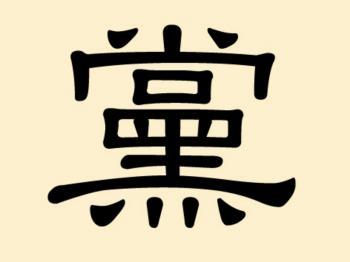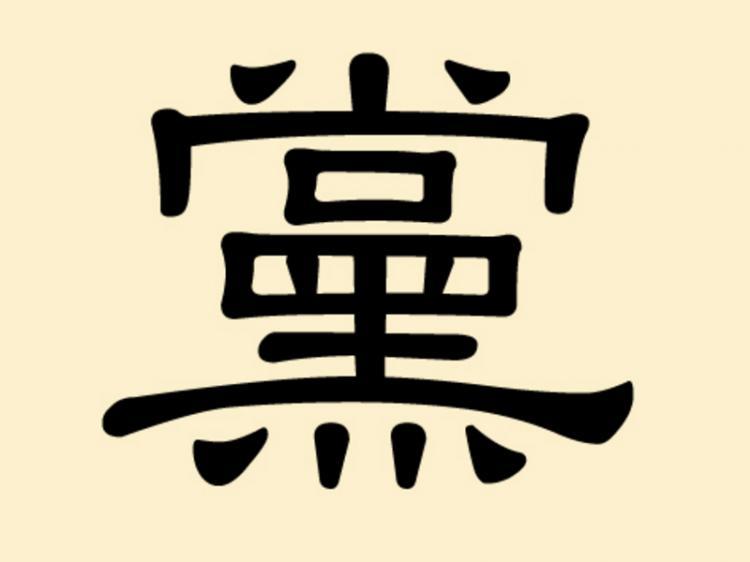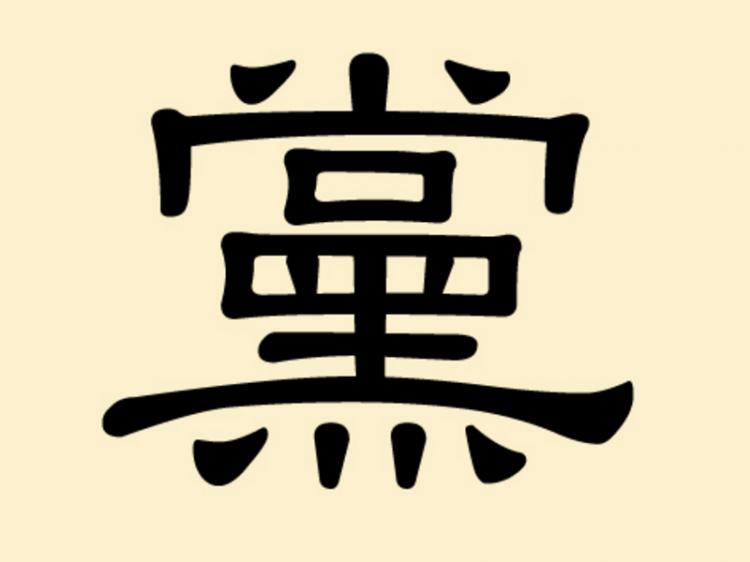黨 (dăng) is a character that contains many negative implications. Originally it came from the word 不鲜 (bùxiăn). The 鲜 (xiăn) consists of the ideograms 鱼 (yú) and 羊 (yáng), where 鱼 is the character for fish and 羊 is the character for sheep. 不 (bù) on the other hand constitutes the negation form in the Chinese language.
不鲜 therefore depicts that something is neither fish nor sheep. Fish as well as sheep have strong body odors, and their decaying stench is almost unbearable. When something is neither fish nor sheep, figuratively that means something is no longer fresh.
黨 consists of the ideograms 尚 (shàng) and 黑 (hēi). 尚 means promoting and 黑 stands for the color black, or darkness. Black and darkness is strongly disliked in China, and black is also considered a color of mourning.
Chinese connect something that has been burned with the color black. That also testifies for the lower half of 灬, which symbolizes fire. Everything burned in a fire turns dark—even the ashes of a loved one.
Finally, blackness and darkness are not very popular in China because they are connected with something bad. The negative attitude of the Chinese toward the color black thus stems from the fact that in former times one only burned something that was bad, which consequently turned black. Thus, 尚 (to promote) and 黑 (darkness, black) together come to make the character 黨 (promoting darkness, promoting blackness) – which also has a negative meaning.
In the long history of China, the idea of a gang, clique or party was discredited. Confucius said: “I have heard that no noble person will join a party.” In his masterpiece Lun Yu he explained: “In order to help each other to cover up bad deeds, one forms a party.”







